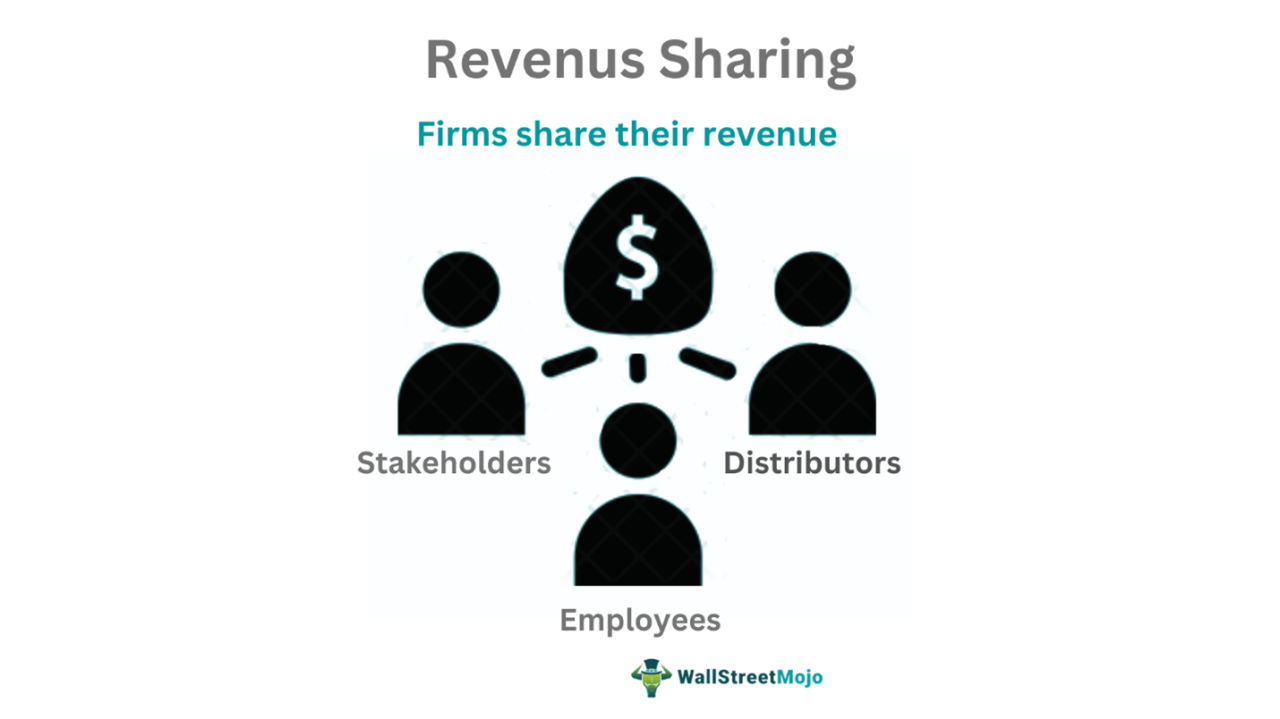Digital Tax Implications of Revenue-Sharing Platforms: Navigating the Complexities

Delving into the intricate world of digital tax implications of revenue-sharing platforms, this article sheds light on the crucial aspects that businesses need to comprehend.
As we unravel the layers of international tax compliance, impact on small businesses, and the regulatory environment, a comprehensive understanding awaits you.
Overview of Digital Tax Implications
Digital tax implications refer to the tax laws and regulations that apply to businesses operating in the digital sphere, particularly those using revenue-sharing platforms. These implications can include taxes on digital transactions, online sales, and the use of digital platforms for income generation.Revenue-sharing platforms such as Uber, Airbnb, and Amazon are examples of businesses that are significantly impacted by digital tax laws.
These platforms facilitate transactions between users and generate revenue through commissions or fees, making them subject to taxation in various jurisdictions.Understanding digital tax implications is crucial for businesses using revenue-sharing platforms to ensure compliance with local tax laws and regulations.
Failure to do so can result in penalties, fines, and legal consequences, impacting the financial health and reputation of the business. It is essential for businesses to stay informed about digital tax laws and seek professional advice to navigate the complex landscape of digital taxation effectively.
International Tax Compliance
International tax compliance can be a complex and challenging aspect for companies operating on revenue-sharing platforms. With operations spanning multiple countries, companies face various challenges in navigating the different tax regulations and laws that govern their activities.
Challenges with International Tax Compliance
- Companies need to understand and comply with the tax laws of each country they operate in, which can be time-consuming and resource-intensive.
- Differences in tax rates, reporting requirements, and compliance deadlines across countries can lead to compliance errors and potential penalties.
- Navigating transfer pricing regulations and determining arm's length pricing for transactions between related entities in different countries can be a significant challenge.
Tax Regulations for Revenue-Sharing Platforms in Different Countries
- Some countries have specific tax regulations tailored for revenue-sharing platforms, while others apply general tax laws that may not directly address the unique business model of these platforms.
- Countries may have varying approaches to classifying revenue from these platforms, such as royalty income, service income, or business profits, leading to different tax treatments.
- Tax authorities in different countries may have varying levels of enforcement and interpretation of tax laws related to revenue-sharing platforms, adding complexity to compliance efforts.
Key Differences in Tax Laws for Global Operations
- Companies operating globally need to be aware of differences in permanent establishment rules, which determine when a company is considered to have a taxable presence in a particular country.
- VAT/GST regulations vary across countries, affecting the tax treatment of transactions on revenue-sharing platforms and adding complexity to compliance efforts.
- Treaty provisions for the avoidance of double taxation need to be considered when operating in multiple countries to prevent being taxed on the same income in more than one jurisdiction.
Impact on Small Businesses

Small businesses utilizing revenue-sharing platforms are significantly impacted by digital tax implications. These businesses often have limited resources and may struggle to navigate the complex landscape of digital tax laws.
Strategies for Small Businesses
Small businesses can implement the following strategies to effectively navigate digital tax laws:
- Stay informed: Keep up-to-date with changes in digital tax laws and regulations to ensure compliance.
- Utilize accounting software: Invest in accounting software to accurately track revenue and expenses related to revenue-sharing platforms.
- Seek professional advice: Consult with tax professionals or accountants who specialize in digital tax compliance to receive guidance tailored to your business.
- Utilize tax deductions: Take advantage of any available tax deductions or credits to minimize tax liability.
Advantages and Disadvantages for Small Businesses
There are both advantages and disadvantages for small businesses in relation to digital tax compliance:
- Advantages:
- Improved financial management: Digital tax compliance can help small businesses better manage their finances and track revenue streams.
- Competitive advantage: Complying with digital tax laws can enhance the reputation of a small business and attract more customers.
- Disadvantages:
- Increased costs: Small businesses may incur additional costs associated with digital tax compliance, such as investing in software or hiring tax professionals.
- Complexity: Navigating digital tax laws can be complex and time-consuming for small business owners, diverting attention from core business operations.
Regulatory Environment

The regulatory environment surrounding digital taxes and revenue-sharing platforms plays a crucial role in shaping the landscape of international tax compliance. Changes in tax laws can have a significant impact on the operations of these platforms and the businesses that rely on them.
Governments worldwide are actively involved in formulating digital tax policies that aim to ensure fair taxation in the digital economy while also addressing the challenges posed by new business models and cross-border transactions.
Impact of Regulatory Changes
- Regulatory changes can introduce new compliance requirements for revenue-sharing platforms, such as reporting obligations and tax payment deadlines.
- Platforms may need to adjust their operations and financial systems to ensure compliance with the evolving tax laws, which can increase their administrative burden and operational costs.
- Uncertainty around regulatory changes can also create challenges for businesses using these platforms, as they may face tax implications that were not accounted for in their initial business plans.
Government Role in Shaping Policies
- Governments play a key role in shaping digital tax policies by implementing measures to address tax avoidance and ensure that digital businesses contribute their fair share of taxes.
- Policy decisions regarding the taxation of revenue-sharing platforms can impact the competitiveness of businesses operating in the digital economy and influence investment decisions in the sector.
- The collaboration between governments and international organizations is essential to establish a cohesive framework for digital taxation that promotes transparency and fairness across borders.
Closing Notes

In conclusion, the landscape of digital tax implications for revenue-sharing platforms is multifaceted and ever-evolving. By staying informed and proactive, businesses can adapt and thrive in this dynamic environment.
FAQ Insights
How do digital tax implications impact small businesses?
Digital tax implications can pose challenges for small businesses, requiring them to navigate complex regulations and ensure compliance to avoid penalties.
What are some key differences in tax laws for revenue-sharing platforms across different countries?
Tax laws for revenue-sharing platforms vary widely between countries, impacting how businesses operate and pay taxes on their earnings.
How do changes in tax laws affect the operations of revenue-sharing platforms?
Changes in tax laws can significantly impact the profitability and compliance requirements of revenue-sharing platforms, necessitating adjustments in their operations.






